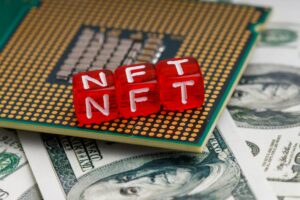South Africa Takes the Lead in Crypto Regulation with 59 New Licences

By Hannah Parker
By approving licences for 59 crypto enterprises, South Africa has established itself as a pioneer in African cryptocurrency legislation.
Given the rapid rate of cryptocurrency acceptance worldwide, the Financial Sector Conduct Authority (FSCA) proposal represents a critical turning point in the continent’s cryptocurrency scene.
The action aims to shield customers from the hazards of the cryptocurrency market by creating a controlled and secure environment for transactions involving cryptocurrencies.
Crypto Laws in South Africa
The Financial Sector Conduct Authority (FSCA) is mainly in charge of regulating cryptocurrencies in South Africa. The FSCA has extensively tried to provide a legislative framework for the cryptocurrency sector. The principal regulatory actions consist of the following:
Crypto Asset Classification: The FSCA categorised cryptocurrency assets as financial products in 2022, putting them under regulatory control.
Licencing of Cryptocurrency Businesses: The FSCA mandates that cryptocurrency businesses seek licences to operate to ensure compliance with financial regulations.
Counterterrorism Financing (CTF) and Anti-Money Laundering (AML) Measures: AML and CTF standards must be followed by cryptocurrency enterprises to stop illegal activity.
These crypto laws have a wide range of effects on the South African economy:
Bringing in Investment: Clear legislation gives domestic and foreign investors confidence, which may encourage more money to be invested in cryptocurrency and related businesses.
Innovation and Growth: New technology and business models can emerge in a stable framework in a controlled environment, which promotes innovation and boosts economic growth.
Consumer Protection: Regulations protect customers by reducing dangers like fraud and market manipulation. This increases their trust in utilising cryptocurrency assets, which may spur adoption and economic activity.
Financial Inclusion: By providing an alternate method of financial access, cryptocurrencies can increase economic participation and empowerment, particularly for those who are underbanked or unbanked.
The overall goal of enacting crypto legislation in South Africa is to establish a stable framework that safeguards interested parties and fosters the market’s responsible expansion while boosting the nation’s economy.
FSCA’s Regulatory Move
The Financial Sector Conduct Authority (FSCA) of South Africa has granted licences to by 59 companies engaged in cryptocurrency-related operations, marking a significant step towards regulating the cryptocurrency sector.
This action comes after the FSCA decided in 2022 to label cryptocurrency assets as financial products, requiring regulation.
According to Web3 Experts at Cryptominded, this regulation’s main objective is to protect consumers by reducing the hazards connected to the cryptocurrency market, like possible fraud and money laundering.
The FSCA seeks to improve the security and integrity of the cryptocurrency market by implementing a regulatory framework, guaranteeing a safer atmosphere for users and investors.
Licensing Process and Criteria
The FSCA had a rigorous and comprehensive licencing process. Companies applying for licences must strictly follow the regulatory body’s compliance guidelines.
These guidelines included a range of topics related to financial operations, such as ethical behaviour, security precautions, and openness. Only companies that satisfied the strict requirements were given the go-ahead.
By limiting the number of legitimate companies that can engage in the South African cryptocurrency market, this rigorous approach increases customer confidence and stabilises the market.
Scope of Licensed Activities
The FSCA grants licences for a broad variety of cryptocurrency-related operations. Among them are:
Cryptocurrency Exchanges: Platforms where users can buy, sell, and trade cryptocurrencies.
Custody Services for Crypto Assets: Services that provide secure storage for cryptocurrencies, protecting them from theft or loss.
Payment Processors Facilitating Crypto Transactions: Companies that allow businesses to accept digital currencies as payment for goods and services.
Brokerage Firms Dealing in Crypto Assets: Firms that act as middlemen for buying and selling cryptocurrencies on behalf of their clients.
This wide range of authorised operations is a testament to the size of the cryptocurrency sector and the FSCA’s dedication to industry regulation.
Market Response and Applications
The market responded overwhelmingly well to the licencing procedure, which started in June 2023, as over 300 applications were filed before the deadline of November 30th.
This large number of applications shows how interested companies are in the South African cryptocurrency market and how much they want to work inside a regulated environment.
The vast amount of applications further highlights the potential for growth in the South African cryptocurrency market as companies want to take advantage of the opportunities a regulated environment provides.
Implications and Industry Perspectives
South Africa’s cryptocurrency market regulation is anticipated to result in several beneficial developments. Increased security and openness will probably draw in more users and investors, promoting innovation and industry growth.
On the other hand, a few business insiders are demanding more explicit information on the laws and continuous compliance standards.
This clarity is crucial for businesses to properly comprehend the new environment and ensure they are operating within the law. In general, the regulatory action taken by the FSCA is a step towards a more developed and stable cryptocurrency industry in South Africa.
The FSCA’s granting of 59 licences to cryptocurrency companies demonstrates South Africa’s proactive attitude to crypto regulation and marks a significant step forward in assimilating virtual currencies into the established financial system.
South Africa has created a robust legislative framework that encourages security, innovation, and transparency, protecting consumers while creating an atmosphere favourable to economic expansion.
With this regulatory advance, the nation is positioned as a leader in the African cryptocurrency space. It establishes a prudent and forward-thinking regulation standard in the quickly developing digital economy.
You might also like…
Source link
#South #Africa #Leads #Crypto #Regulation #Licences





